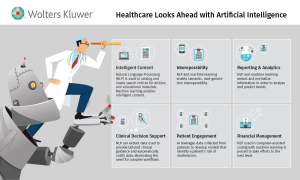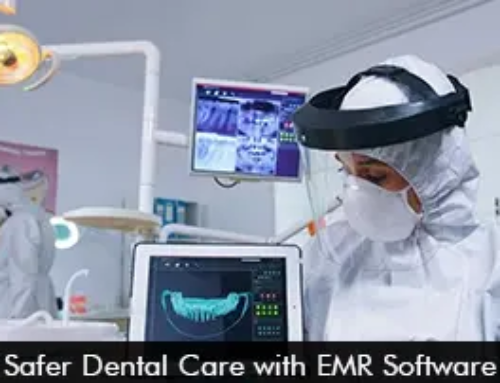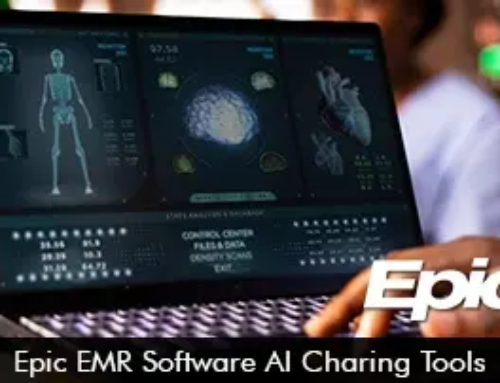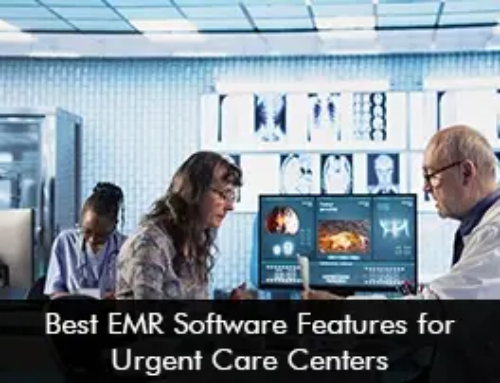EMR and AI, are converging to reshape the healthcare industry. The integration of Artificial Intelligence (AI) into Electronic Medical Record (EMR) systems is unlocking unprecedented potential, and revolutionizing patient care, clinical decision-making, administrative processes, and much more. This blog dives deep into the synergy of EMR and AI integration, illuminating how this partnership is fostering a new era of healthcare excellence.
The EMR and AI Revolution
Electronic Medical Record (EMR) systems have transformed how healthcare providers manage patient information. From digitizing records to facilitating data exchange, EMRs have streamlined workflows and improved patient care. Concurrently, the rise of Artificial Intelligence (AI) has ushered in a new wave of innovation across industries. AI’s ability to analyze data, identify patterns, and make predictions has found a natural fit in the complex realm of healthcare.
As the worlds of EMR and AI converge, their collective potential shines brighter than ever before.
Enhancing Clinical Decision-Making
AI’s integration into EMR systems is redefining how clinical decisions are made. With the ability to process massive amounts of data quickly, AI algorithms assist healthcare professionals in diagnosing diseases, suggesting treatment options, and predicting patient outcomes. This synergy empowers clinicians to make informed decisions supported by data-driven insights, ultimately improving patient care.
However, the partnership between EMR and AI isn’t limited to just diagnostics.
Personalizing Patient Care
A cornerstone of modern healthcare is personalized treatment. EMR and AI collaboration takes this concept to new heights. By analyzing patient records and medical histories, AI-powered EMRs can generate tailored treatment plans that consider individual patient characteristics, from genetics to lifestyle factors. This personalized approach addresses patient uniqueness, enhancing treatment efficacy and patient satisfaction.
However, the benefits extend beyond the treatment room.
Streamlining Administrative Processes
Healthcare is as much about patient care as it is about efficient operations. AI-integrated EMRs are revolutionizing administrative tasks. From appointment scheduling to billing and insurance claims processing, AI automates these processes, minimizing errors and freeing up healthcare staff to focus on more value-added tasks.
However, concerns about data security have often loomed large in healthcare technology.
Bolstering Data Security
AI, with its advanced algorithms, is a powerful ally in safeguarding patient data. The integration of AI enhances EMR system security by detecting unusual patterns in user behavior, identifying potential security breaches, and thwarting unauthorized access. This added layer of security addresses one of the critical challenges in healthcare technology.
Apart from clinical aspects, the collaboration between EMR and AI holds promise in preventative measures.
Predictive Analytics and Population Health in EMR and AI Integration
AI’s predictive prowess is harnessed for more than just individual diagnoses. Integrated into EMR systems, AI can analyze vast amounts of patient data to identify health trends within populations. This proactive approach aids in disease prevention and health promotion initiatives, enabling healthcare providers to allocate resources effectively.
As the partnership flourishes, patient engagement is also redefined.
Empowering Patient Engagement
AI-augmented EMRs elevate patient engagement through interactive interfaces and communication tools. Patients can access their medical records, schedule appointments, receive reminders, and even receive automated responses to queries. This engagement fosters a collaborative patient-provider relationship, enhancing treatment adherence and overall health outcomes.
However, challenges must be acknowledged as we embrace this revolution.
Ethical and Regulatory Considerations
As EMR and AI integration deepens, ethical and regulatory concerns come to the forefront. Ensuring patient data privacy, addressing potential bias in AI algorithms, and complying with evolving healthcare regulations remain crucial considerations. Striking the balance between innovation and ethical practice is essential.
Nonetheless, the overarching impact of this synergy is undeniable.
The Future of Healthcare With EMR and AI Integration
The synergy between EMR and AI is a testament to healthcare’s transformative potential. From revolutionizing diagnostics and personalized care to streamlining operations and bolstering data security, this collaboration is shaping the future of healthcare. The resulting paradigm shift promises a patient-centric, efficient, and more effective healthcare ecosystem.









